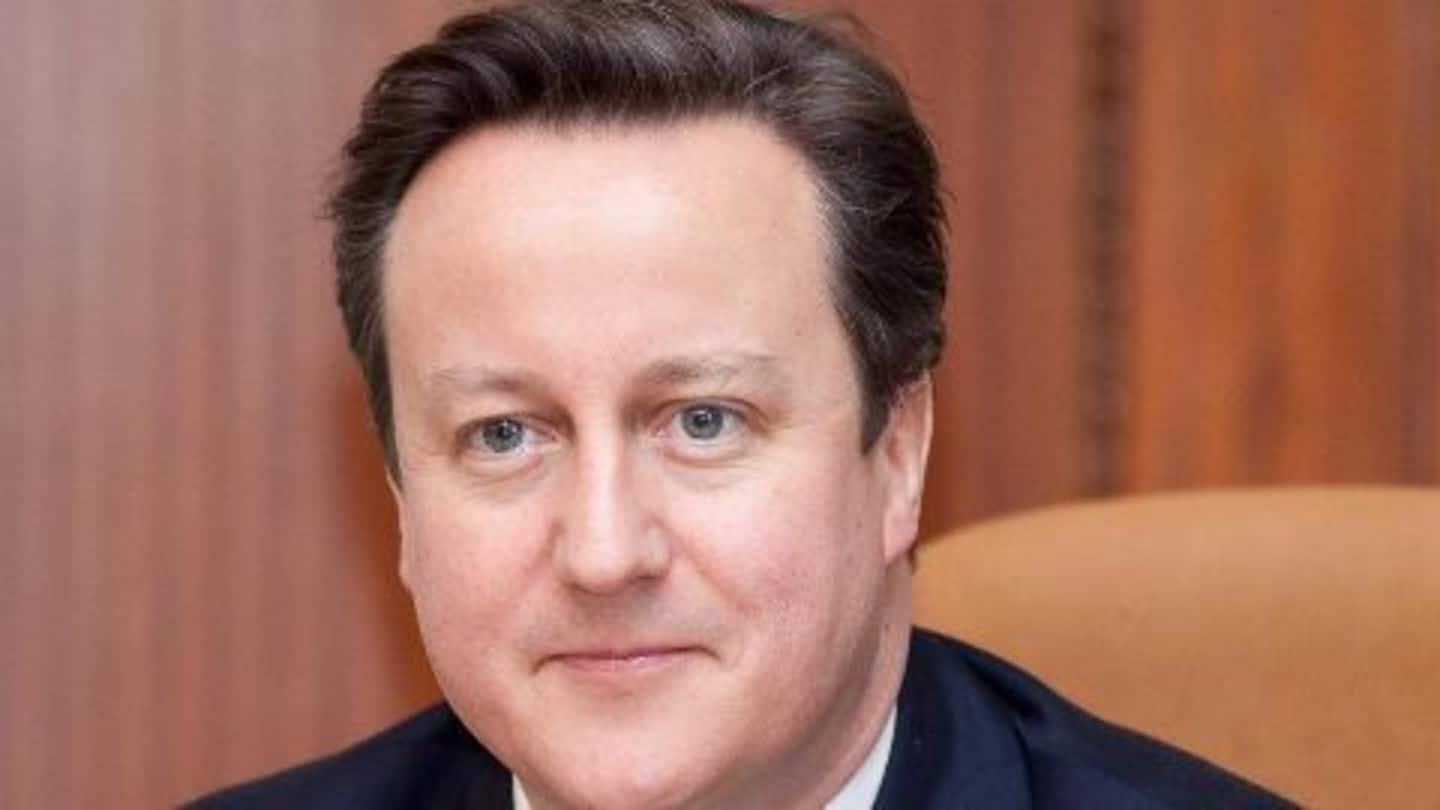
PM Cameron supports burqa ban in schools, courts, borders
What's the story
Britain's PM David Cameron voiced his support for barring face-covering veils like the burqa from being worn in schools, courts and border checkpoints.
He said that institutions like courts and border checkpoints were correct in demanding that people keep their faces visible.
He also said that face-covering burqas were against school uniform policies.
Cameron, however, rejected blanket-banning the burqa, as done in France.
6 Oct 2006
British minister triggers debate over veils
British MP, Jack Straw wrote a newspaper article seeking face-covering burqas to be prohibited from being worn in public interactions.
PM Tony Blair and Gordon Brown came out in support of Straw's views, holding that burqas were a 'mark of separation'.
The debate escalated when Aishah Azmi, a teacher at Church of England school was sacked for wearing a burqa in the classroom.
Data
Interesting poll finding
According to an October 2006 poll, 61% of the British public agreed that burqas were responsible for segregating Muslim women but 77% said women reserved the right to wear them.
14 Sep 2010
France bans face-covering burqa
The French parliament passed a law, prohibiting all face-covering clothing including the burqa, from being worn in public places impacting about 2,000 French Muslim women.
The law was passed after Sarkozy and other politicians raised concerns that face-coverings prevented proper identification of a person.
The law aimed to address both the security risks and social hindrances that wearing of face-covering veils caused.
21 Feb 2013
Schools, court cases spark further debate over burqas
Birmingham Metropolitan University banned the burqa citing security concerns, in a move that received PM Cameron's support.
The university had to retract the ban following student protests.
A London judge ordered a woman to remove her burqa in the courtroom, in order to be identified.
He, too, had to compromise and allow her to wear the burqa at all times, except while testifying.
Alienation
Growing alienation of British Muslims driving their radicalization
Politicians including PM Cameron and former Foreign Minister Kim Howells have attributed the radicalization of British Muslims to the lack of multiculturism in UK.
Muslims born in the UK continue to face discrimination and socio-economic barriers as revealed in a 2006 Pew Survey.
According to the survey, British Muslims are more alienated than the Muslims in any other country.
Personal
Rising number of Britons joining ISIS
UK Foreign Secretary Philip Hammond disclosed that ~800 Britons had joined the ISIL while ~600 had been caught making attempts since 2012. ~25 girls had emigrated to Syria as jihadi brides.
18 Jan 2016
Measures to tackle Muslim community segregation
Cameron announced a £20m plan to teach English to Muslim women, in a move that aims to achieve social integration of immigrants, especially Muslim women, and prevent their radicalization.
He announced a plan to test the English language skills of migrants holding spousal visas, 2.5 years after their arrival in the country.
Spouses would be deported if their English skills were found unsatisfactory.
18 Jan 2016
Education Ministry steps in to control radicalization
Part of its campaign against the corrupt influence of extremist propaganda over youth, Britain's Education Ministry launched an anti-radicalization website called 'Educate against hate'.
The website gives practical advice and information to teachers and parents for protecting children from extremism.
The Department of Education has also launched a crackdown on illegal and unregistered schools, working as breeding grounds for extremism.